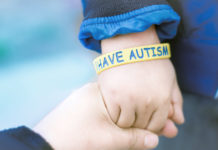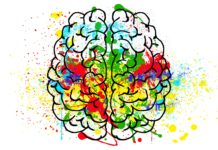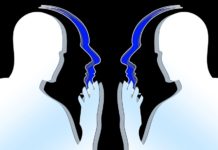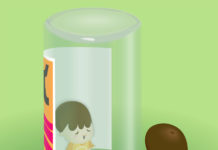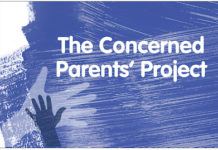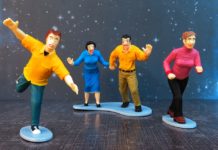The Scientism of Autism
Autism is now simply assumed to represent a real, tangible, identifiable ‘thing.’ But no one is asking the obvious question: On what evidential basis can you conclude that autism represents a natural category that can be differentiated from other natural categories? According to the real science, autism should be seen as a fact of culture, not a fact of nature.
Apply Yourself, Your Whole Self, and Nothing But Yourself
Now, personality tests are being used to determine which side of the wealth gap people will fall on. Who you are is not neutral — the lens your personality-test results will be viewed through is: “are you a good worker?” Any definition of this will likely exclude psychiatric survivors, those labeled by the DSM and those who see, think, hear, speak and feel differently.
Scientists Fight Against the Myth of the Normal or Optimal Brain
A new study out of Yale University uses evolutionary biology to debunk the idea that there is a “normal” or “optimal” brain.
Leon J. Kamin (1927-2017): A Nemesis of Genetic Determinism and Scientific Racism
Leon Kamin should be remembered for his role as an intellectual nemesis of the purveyors of the false ideologies of scientific racism and genetic determinism. The Science and Politics of I.Q., Not in Our Genes, and Kamin’s other writings remain works of major importance.
Childhood Adversity Influences Levels of Distress in Voice Hearers
Research finds that hearing negative voices explains how childhood adversity is related to distress.
“How Long a Time”: Ten Cold Hard Truths For Ending Psychiatric Abuse
Here are the Ten Cold Hard Truths we must ALL confront in our organizing efforts. If we fail to understand and grasp these truths we will ALL be susceptible to “burnout” and/or a slide into dead-end reformist type strategies that will only derail our efforts to reach the day when we can truly end all forms of psychiatric abuse.
Psychiatric Diagnosis Can Lead to Epistemic Injustice, Researchers Claim
A discussion of the role of epistemic injustice in the experiences of patients diagnosed with psychiatric disorders.
Study Calls for Consensus on Overdiagnosis Across Medical Disciplines
Lack of overdiagnosis parameters stifles communication across fields seeking to mitigate its potential harm.
How the Human Stress Response Explains Away “Bipolar Disorder”
Here we'll take a look at so-called 'mania.' We'll go through the criteria for a 'manic episode' symptom by symptom so you can see how the stress response is potentially operating. There's practically nothing that happens in human minds and bodies that the stress response doesn't potentially affect.
The Concerned Parents’ Project: 31 Questions
The Concerned Parents’ Project grew out of the idea that there may be parents out there who are confused and bewildered by the mixed messages on what it is to have normal and healthy childhood experiences. We posted a new question and answer for parents each day in March.
10 Things I Learned in 5 Years Consulting With People Coming Off Psych Drugs
It's been over 5 years since I started offering non-medical consultations to people in the process of coming off or hoping to come off psych drugs. I wanted to share here some things I have learned in this process. Despite how far we have come, we have a long way to go in the quest to liberate all who wish to be liberated from psychiatry.
Most Direct-to-Consumer Drug Advertisements Do Not Adhere to FDA Guidelines
Few DTC drug advertisements fully adhere to FDA guidelines, the overall quality of information provided in DTC advertisements is low, and some advertisements market off-label indications.
National Institute of Mental Health Violates Law on Posting Clinical Trial Results
Last year, over twenty major institutions worldwide jointly committed to posting the results of all their clinical trials within a 12 month time frame. NIMH’s frequent failure to do so is especially concerning because evidence distortion appears to be remarkably widespread in journal articles discussing trials of psychiatric drugs.
Mindfulness Intervention Can Prevent Depression, Study Finds
A combined mindfulness and behavioral activation intervention is shown to reduce depressive symptoms and serve as a preventative factor for major depressive disorder.
Study Explores Māori Community’s Multifaceted Understanding of “Psychosis”
A new study explores how “psychosis” and “schizophrenia” are viewed within the Māori community in New Zealand.
Calm, Organized, Homicidal Behaviour – My Connection to School Shooters
There is little doubt in my mind that many school shooters were in an antidepressant-induced state of psychosis, which is a loss of contact with reality that makes it difficult to distinguish between what is real and what is not real. That's what happened to me. I started taking 60mg of Paxil a day. Three days later, I planned my suicide. Then I planned a murder.
High Rates of Questionable Research Practices Found in Ecology and Evolution
A new study, published online by the Open Science Foundation, suggests that questionable research practices (QRPs) are prevalent in the fields of ecology and evolution.
Existential Therapy Assists Patients Withdrawing From Psychiatric Drugs
Confronting existential anxiety through “Basal Exposure Therapy” shows promising results in people withdrawing from psychotropic drugs.
When Facebook Sent the Cops to My Shelter
Somehow, something I had said in this “secret” Facebook group had been made known. And now, at almost midnight, a cop was banging at the door of the lady who had been keeping me safe in a secret place. How did a “secret” Facebook conversation bring the cops to an address I didn’t have to perform a suicide prevention “welfare check”? Here’s what their “safe” meant to my safety.
Institutionalization: An Unacknowledged Cause of Psychiatric Outpatients’ Deterioration
Psychiatry didn’t really stop institutionalizing people; it just found new ways to do it. Institutionalization, rather than drug toxicity, best explains patients’ downhill course and their
worsening after coming off meds, as they have lost the skills needed to cope with life’s challenges due to disuse.
A Tale of Two Studies
With increasing evidence that psychiatric drugs do more harm than good over the long term, the field of psychiatry often seems focused on sifting through the mounds of research data it has collected, eager to at last sit up and cry, here’s a shiny speck of gold! Our drugs do work! One recently published study on withdrawal of antipsychotics tells of long-term benefits. A second tells of long-term harm. Which one is convincing?
Psychiatry and a Near Mass Shooting at Cornell
Nearly all perpetrators of mass violence have had some contact with psychiatry or related mental health services. The idea of giving more power and money to psychiatry to prevent violence is a great political talking point but it is disastrous for public health and safety. Psychiatry seems averse to recognizing violent patients but eager to give them violence-inducing drugs.
Psychology Textbooks Promote Misinformation About Intelligence
In a new study, researchers examined 29 popular introduction to psychology textbooks and found that almost 80% included misinformation about intelligence.
The Antidepressant Wars in the Post-Truth Era
We have at least some solid, incontrovertible evidence available to all that the claims about antidepressants in the press do not directly match the text of the source article in the Lancet. Nowhere in the original article did the authors make the extreme or even controversial claims appearing in the mainstream media.
Changing Mental Health, One Published Case Report At A Time
Lifestyle interventions are the only corrective measures that are sufficiently complex to resolve the stress response factors that drive pathology. This case draws from twenty years of published scientific literature on psychoneuroimmunology and the connection between the gut, immune system, endocrine system, and the brain.

